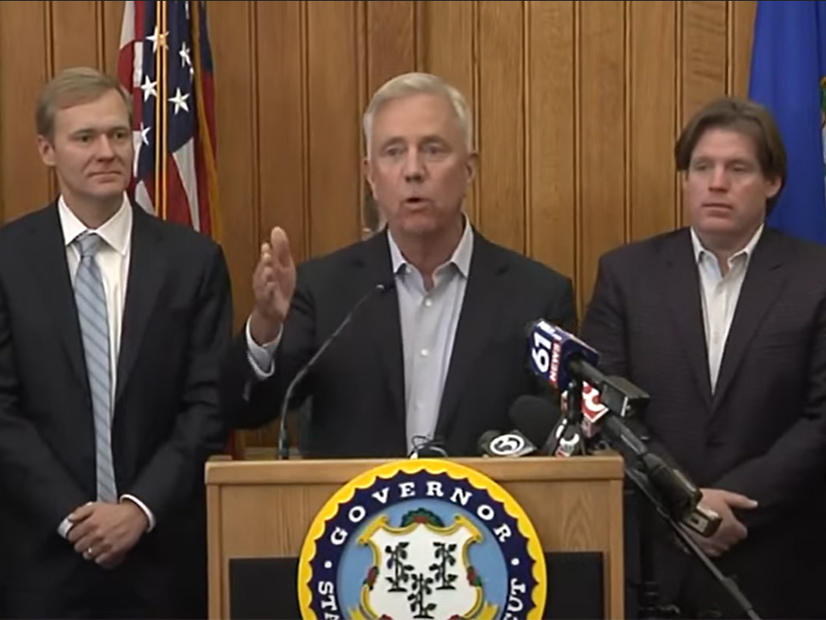In a setback for Connecticut’s electric vehicle goals, Gov. Ned Lamont (D) has withdrawn regulations that would have required all new vehicles sold in the state to be non-emitting by 2035, in line with California’s emissions standards.
The regulations were facing rejection from the legislature’s Regulation Review Committee, with members of the committee expressing concern about affordability and the development of adequate charging infrastructure.
In a press conference following the withdrawal of the regulations, Democratic leaders expressed their disappointment with the “speed bump” while vowing to work to find a workable solution that would satisfy concerns about cost and infrastructure while maintaining strong electric vehicle goals.
“We do not want to be left behind as a state,” said Sen. Christine Cohen (D), co-chair of the joint Transportation Committee. She added that there is “no plan to do away with the ban altogether.”
Lamont stressed the importance of the regulations and said he will work with members of the legislature to address their concerns.
“Is Connecticut going to be the first state to renege on a commitment we made on a strongly bipartisan basis just two years ago, and on a unanimous basis back about 20 years ago?” Lamont said. The state first aligned its emissions regulations with California in 2004.
Lamont added that predictable regulations combined with incentives and economies of scale will continue to bring down the costs associated with EVs.
“This is how you make it affordable,” Lamont said. “Changing our minds will take us in the wrong direction.”
Katie Dykes, commissioner of the Department of Energy and Environmental Protection, highlighted the air quality benefits of rapidly reducing vehicle emissions.
“Connecticut has some of the worst air quality in the country,” Dykes said. “Our kids and our vulnerable communities — especially environmental justice communities living near highways and industrial zones — are disproportionately experiencing asthma and respiratory illness, disrupted lives and high medical bills because of it.”
Dykes noted that the majority of the air pollution generated in the state comes from vehicles, along with 40% of the state’s carbon pollution.
“It will be nearly impossible for us to meet the state’s Global Warming Solutions Act targets of reducing greenhouse gas emissions 45% by 2030 without vehicle emissions standards in place,” Dykes said. EVs now make up about 10% of vehicle sales in the state, while charging port availability has increased by 30% over the past year, she said. “A pause in this momentum will make it harder to purchase an EV in Connecticut.”
The move comes after a concerted lobbying campaign by the state’s oil industry to push legislators on the Review Committee to kill the regulations. At a press conference earlier in November, Chris Herb of the Connecticut Energy Marketers Association called the regulations “too much, too soon.”
“These regulations will increase the cost of gasoline, diesel, electricity and virtually every product and service across the state,” Herb said.
Looking forward, legislative leaders said they are hoping to work quickly with lawmakers to come to an agreement on new legislation setting strong vehicle emissions mandates.
Lamont said the legislature could give itself more oversight and the ability to review and change the regulations in the future if the state proves to be unable to support the transition to EVs under the proposed timeline.
“I think that may get us over the finish line,” Lamont said.
Senate President Martin Looney (D) spoke in favor of “a review process every few years” to account for the pace of technology improvement and the development of EV infrastructure.
“We will be having caucuses and move forward with what we hope will be a consensus bill that can pass both chambers and that the governor will sign,” Looney said.
Beyond the emissions mandates, Looney said the state needs to take significant steps to address affordability and infrastructure concerns. He said the state will need to allocate more funding for chargers and tax breaks for vehicle purchases.
“That has to be factored into our revenue structure,” Looney said. He added that the state will need “additional revenue in order to do that, as well as to meet all of the other existing needs. … This becomes part of an overall discussion on overall policy.”




